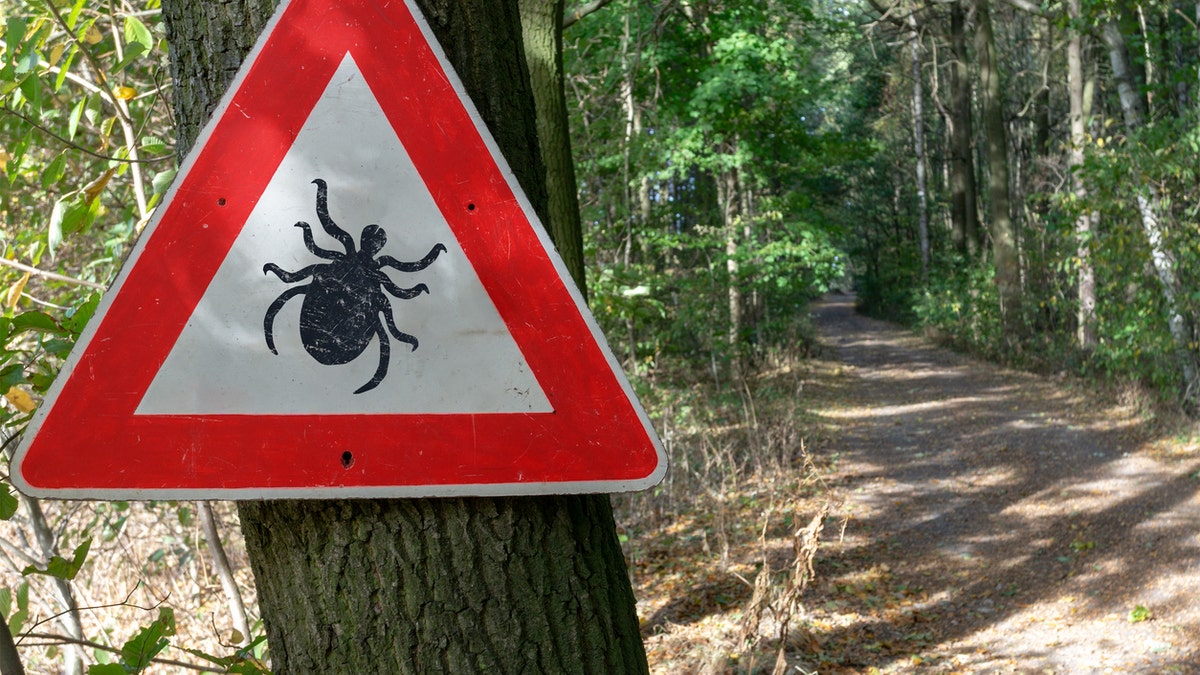Fox News Flash top headlines for May 20
Fox News Flash top headlines are here. Check out what's clicking on Foxnews.com.
Get the latest news on coronavirus and more delivered daily to your inbox. Sign up here.
Experts are experiencing an increase of tick submissions at one laboratory in Maine, reports say.
So far this year, researchers at the University of Maine Tick Lab have received 780 tick submissions from the public, according to one news outlet. Last year, the lab didn’t reach that figure until June 10. Tick experts use the submissions to identify species and to test for disease prevalence like Lyme disease, babesiosis and anaplasmosis.
CLICK HERE FOR FULL CORONAVIRUS COVERAGE
Griffin Dill, tick expert at the lab, pointed the uptick to lockdown measures around coronavirus; people are spending more time outside with limited options for other activities. Warmer temperatures in March also may have encouraged deer tick activity, the expert says, according to the Bangor Daily News.
The pests can stay active as long as the temperatures are above freezing, the report stated.
“Even before the COVID-19 situation, we noticed the samples arriving at the lab just never stopped for the winter,” Dill told the outlet. “We were receiving a slow trickle of samples through January and February, and once we hit March, we started to get some of those warm days and numbers began to increase.”

A sign warns hikers and passersby of ticks. (iStock)
CAN I GET THE CORONAVIRUS OUTSIDE? EXPERTS TALK WIND DISPERSAL, PROVIDE SAFETY TIPS
Most tickborne infections occur during the summer, though ticks may still be active well into the fall, or year-round in warmer climates, according to the Centers for Disease Control and Prevention. As the calendar rolls into tick season, there are several preventative measures you can take to ensure safety and protection.
Since ticks tend to dwell in grassy and wooded areas, the CDC advises tucking pants into boots or socks to prevent ticks from crawling inside clothing. Treat clothing and camping gear with products containing permethrin, which kills ticks. The CDC also suggests using EPA-registered insect repellents containing DEET, picaridin, oil of lemon eucalyptus, among other ingredients.
Dog owners should also consult vets about best tick prevention products because dogs are susceptible to tick bites and tickborne disease.
CDC NOW SAYS CORONAVIRUS 'DOES NOT SPREAD EASILY' VIA CONTAMINATED SURFACES
When out on trails, try sticking to the center to avoid coming into contact with ticks. In the following weeks after possible tick exposure, watch out for fever, rash or flu-like illness in people and pets.

Dogs are very susceptible to tick bites and tickborne disease, the CDC says. Check pets for ticks under the collar, in and around the ears and around eyelids, among other areas. (iStock)
Check yourself thoroughly for ticks after being outside, especially under the arms, in and around the hair and around the waist, among other areas.
Illnesses from tickborne diseases range from very mild to deadly, the CDC says. Illinois residents, for instance, were warned last year after ticks there tested positive for the Heartland virus, a rare illness often requiring hospitalization.
Also, a study by researchers in China published last fall identified a new tick-borne disease, Alongshan virus (ALSV), infecting dozens in Inner Mongolia. Patients’ symptoms usually resolved after six to eight days of treatment, study authors said.
GREAT-GREAT-GRANDMOTHER, 100, BEATS CORONAVIRUS: 'SHE'S OUR LITTLE BOOMERANG'
Furthermore, a 2-year-old boy in Kentucky fell critically ill last summer from another tick-borne disease called Rocky Mountain spotted fever (RMSF), which caused the boy’s face to swell and inflicted other complications involving low blood pressure.
The boy’s mother, Kayla Oblisk, didn’t realize the actual seriousness of the situation until the family was in the intensive care unit, according to a previous interview with Fox News.
With the risks in mind, experts caution that it's important to take the proper precautions this tick season to keep you and your pets healthy.
Fox News' Madeline Farber contributed to this report.

